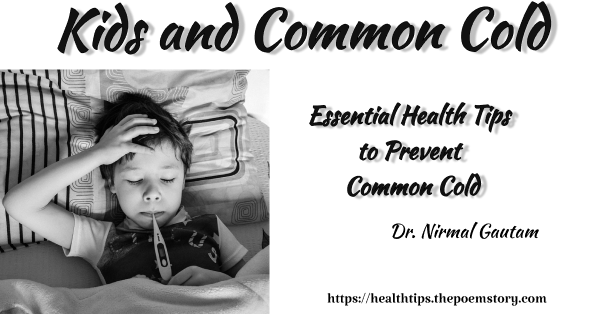Introduction to Mental Health and Sexual Well-being
Mental health and sexual well-being are critical components of an individual’s overall health. Mental health encompasses our emotional, psychological, and social well-being, affecting how we think, feel, and act. It also determines how we handle stress, relate to others, and make choices. On the other hand, sexual well-being is a state of physical, emotional, mental, and social well-being in relation to sexuality. It is not merely the absence of disease, dysfunction, or infirmity, but a positive and respectful approach to sexuality and sexual relationships.
Understanding the connection between mental health and sexual well-being is essential, as these aspects of health are profoundly interconnected. Mental health can significantly influence sexual behavior, satisfaction, and overall sexual health. For instance, mental health conditions such as depression and anxiety can lead to decreased libido, sexual dysfunction, and difficulties in intimate relationships. Conversely, a fulfilling sexual life can enhance mental health by boosting self-esteem, reducing stress, and fostering emotional intimacy.
Moreover, the stigma and societal norms surrounding both mental health and sexual well-being can create barriers to seeking help and achieving a healthy state of both. Recognizing and addressing these barriers is crucial for promoting a holistic approach to health. By understanding how mental health and sexual well-being intersect, individuals and healthcare providers can better address these issues, leading to improved quality of life.
In this blog post, we will delve deeper into the intricate relationship between mental health and sexual well-being. We will explore how mental health issues can impact sexual health and vice versa, offering insights into strategies for maintaining both. Our goal is to shed light on the importance of addressing both mental and sexual health to foster overall well-being.
Related Posts to Read:
- Safe Sex Practices: Tips and Tools for a Healthy Sexual Life
- Understanding and Preventing STIs/STDs: A Comprehensive Guide
- The Importance of Sexual Education for All Ages
- Understanding Female and Male Sex Hormones: A Comprehensive Guide
- Choosing the Right Contraception: A Comprehensive Guide
Explore Category: Sexual Health
Keywords: mental health and sexual well-being, sexual health and mental well-being, impact of mental health on sexual function, therapy for mental and sexual health, Enhancing Mental and Sexual Health

Table of Contents
The Impact of Mental Health on Sexual Function
Sexual Health and Mental Well-Being
Mental health disorders, encompassing conditions such as depression, anxiety, and post-traumatic stress disorder (PTSD), can profoundly impact sexual function. The interplay between mental health and sexual well-being is intricate, involving both physiological and psychological mechanisms that contribute to sexual dysfunction.
Depression, a prevalent mental health disorder, often leads to reduced libido and diminished sexual satisfaction. The neurochemical imbalances associated with depression, particularly involving neurotransmitters like serotonin and dopamine, can disrupt the hormonal pathways that regulate sexual desire and arousal. Furthermore, the lethargy and anhedonia characteristic of depression can diminish an individual’s interest in sexual activities.
Anxiety disorders, including generalized anxiety disorder and social anxiety, also significantly impact sexual function. The constant state of heightened arousal and stress can interfere with sexual performance and satisfaction. Anxiety can cause muscle tension and reduced blood flow, leading to erectile dysfunction in men and decreased lubrication in women. Additionally, the anticipatory anxiety of sexual performance can create a cycle of avoidance and further exacerbate the issue.
PTSD, often resulting from traumatic experiences, can lead to profound sexual dysfunction. Individuals with PTSD may experience flashbacks and intrusive thoughts during intimate moments, making it challenging to engage in and enjoy sexual activities. The hypervigilance and emotional numbing associated with PTSD can further hinder the ability to form and maintain sexual connections.
Statistical data underscores the prevalence of sexual dysfunction among individuals with mental health disorders. Studies indicate that approximately 50% of individuals with depression report some form of sexual dysfunction, while up to 60% of those with anxiety disorders experience similar issues. For individuals with PTSD, the rates of sexual dysfunction can be as high as 80%. These statistics highlight the critical need for integrated approaches to treatment that address both mental health and sexual well-being.
Case studies illustrate these effects vividly. For instance, a 35-year-old man diagnosed with severe depression reported a complete loss of sexual desire, which strained his marital relationship. After receiving comprehensive treatment for depression, including medication and therapy, he experienced significant improvements in both his mental health and sexual function. Such examples underscore the importance of recognizing and addressing the interconnectedness of mental health and sexual well-being.
How Sexual Health Influences Mental Well-being
Sexual health plays a critical role in influencing mental well-being. When individuals experience sexual dissatisfaction, it can manifest in various mental health challenges. Sexual dissatisfaction, whether due to physical issues, emotional disconnect, or unmet expectations, often leads to feelings of inadequacy and low self-esteem. These feelings can, in turn, foster anxiety and depression, creating a cyclical relationship between sexual health and mental well-being.
Sexual trauma is another profound factor that can severely impact mental health. Survivors of sexual trauma may struggle with post-traumatic stress disorder (PTSD), depression, and anxiety. The psychological scars left by such experiences can be deep and long-lasting, affecting an individual’s ability to engage in healthy sexual relationships in the future. This trauma can erode trust, lead to social withdrawal, and perpetuate feelings of worthlessness and shame.
Relationship problems, including issues with intimacy, communication, and sexual compatibility, can also significantly affect mental health. Strained relationships often result in stress and emotional distress, which can exacerbate pre-existing mental health issues or give rise to new ones. The emotional toll of a deteriorating relationship can lead to feelings of isolation, sadness, and hopelessness.
Conversely, a fulfilling sexual life can greatly contribute to improved mental health. Positive sexual experiences can enhance self-esteem, reduce stress, and foster a sense of connection and intimacy with a partner. The release of endorphins and oxytocin during sexual activity can promote feelings of happiness and relaxation, acting as natural mood boosters. Furthermore, healthy sexual relationships often involve open communication and mutual respect, which are crucial for emotional well-being.
In summary, the intricate connection between sexual health and mental well-being underscores the importance of addressing sexual health issues as part of a comprehensive approach to mental health care. Recognizing and addressing sexual dissatisfaction, trauma, and relationship problems can lead to significant improvements in mental health, fostering a more balanced and fulfilling life.
The Role of Medication in Mental and Sexual Health
Therapy For Mental and Sexual Health
Medications used to treat mental health disorders, such as antidepressants and antipsychotics, play a crucial role in managing symptoms and improving overall well-being. However, these medications can also have significant effects on sexual health. Commonly prescribed antidepressants, including selective serotonin reuptake inhibitors (SSRIs) and serotonin-norepinephrine reuptake inhibitors (SNRIs), are known to impact sexual desire, performance, and satisfaction. These effects can manifest as reduced libido, delayed ejaculation, anorgasmia, and erectile dysfunction.
Antipsychotics, which are used to treat conditions like schizophrenia and bipolar disorder, can similarly impact sexual health. These medications often influence neurotransmitter levels in the brain, leading to alterations in sexual function. For instance, dopamine antagonists can reduce sexual desire and impair arousal, while prolactin-elevating antipsychotics can cause sexual side effects by disrupting hormonal balance.
The management of these side effects is essential for maintaining both mental health and sexual well-being. One approach is to adjust the medication dosage under the guidance of a healthcare provider. Sometimes, switching to a different medication with a lower risk of sexual side effects may be beneficial. For example, bupropion, an atypical antidepressant, is often considered because it has a lower incidence of sexual dysfunction compared to SSRIs and SNRIs.
Open communication with healthcare providers is paramount in addressing these concerns. Patients should feel comfortable discussing any changes in their sexual health, as this information can guide treatment adjustments and improve overall quality of life. Healthcare providers may also suggest adjunct therapies, such as psychotherapy or couples counseling, to address the psychological impact of sexual side effects and enhance relational intimacy.
In summary, while medications for mental health disorders are vital for symptom management, their impact on sexual health cannot be overlooked. By proactively managing these side effects and fostering open dialogue with healthcare professionals, individuals can achieve a balanced approach to both mental and sexual well-being.
Therapeutic Approaches to Addressing Both Mental and Sexual Health
Addressing the intertwined aspects of mental and sexual health often requires a multifaceted therapeutic approach. One of the most widely recognized methods is Cognitive-Behavioral Therapy (CBT). CBT targets the underlying thought patterns that contribute to mental health issues, such as anxiety and depression, which can also impact sexual well-being. Through structured sessions, CBT helps individuals reframe negative thoughts and develop healthier coping mechanisms, thereby enhancing both mental and sexual health.
Sex therapy, another specialized form of psychotherapy, focuses explicitly on sexual issues. This therapeutic approach can address a range of concerns, from erectile dysfunction and low libido to sexual trauma and intimacy issues. By providing a safe space to discuss these matters, sex therapy helps individuals and couples overcome barriers to sexual satisfaction, which, in turn, can alleviate associated mental health problems. Techniques employed in sex therapy often include communication exercises, sensate focus exercises, and education on sexual anatomy and function.
Couple’s therapy is also pivotal in addressing the nexus of mental and sexual health. This form of therapy aims to improve the overall relationship dynamics, which can directly influence both partners’ mental and sexual well-being. By fostering better communication, resolving conflicts, and enhancing emotional intimacy, couple’s therapy helps partners build a more satisfying and supportive relationship. This holistic improvement often leads to better mental health outcomes and a more fulfilling sexual connection.
In many cases, these therapies can be used in combination to provide a more comprehensive treatment plan. For instance, an individual may benefit from both CBT and sex therapy to address concurrent issues of depression and sexual dysfunction. Similarly, couple’s therapy may be integrated with individual therapy to optimize outcomes for both partners. By adopting a tailored, multi-therapeutic approach, healthcare providers can more effectively address the complex interplay between mental health and sexual well-being, leading to improved quality of life for their patients.
The Importance of Open Communication in Relationships
Open communication is a cornerstone of healthy relationships, particularly when navigating the complex interplay between mental health and sexual well-being. Honest dialogue allows partners to express their needs, fears, and boundaries, fostering a supportive environment where both individuals feel heard and valued. Addressing mental health issues and their impact on sexual health requires a mutual commitment to transparency and empathy.
Initiating difficult conversations can be challenging, but it is essential for maintaining a strong connection. One effective approach is to choose a comfortable and private setting, ensuring both partners feel safe to share their thoughts. Starting with “I” statements can help avoid blame and keep the conversation focused on personal feelings and experiences. For example, saying “I feel anxious about our intimacy” is more constructive than “You never seem interested in me.”
Empathy plays a crucial role in these discussions. Actively listening to your partner and validating their feelings can help build trust and intimacy. It is important to acknowledge their emotions without immediately offering solutions unless asked. Sometimes, simply being present and understanding can make a significant difference. Phrases like “I understand this is difficult for you” or “I appreciate you sharing this with me” can reinforce a sense of mutual respect and support.
Ongoing communication is vital as mental health and sexual well-being can fluctuate over time. Regular check-ins can help partners stay attuned to each other’s needs and adapt to changes together. This proactive approach can prevent misunderstandings and ensure that both individuals feel supported throughout their journey.
Ultimately, open and honest communication strengthens the bond between partners, enhancing both emotional and physical intimacy. By prioritizing dialogue, empathy, and mutual support, couples can navigate the challenges of mental health and sexual well-being more effectively, fostering a healthier and more fulfilling relationship.
Self-care Strategies for Enhancing Mental and Sexual Health
Maintaining optimal mental and sexual health is intricately linked to adopting effective self-care strategies. One of the foremost practices is mindfulness, which involves being present in the moment and cultivating a non-judgmental awareness of one’s thoughts and feelings. Techniques such as meditation, deep breathing exercises, and yoga can significantly improve mental clarity and emotional stability, thereby fostering a more fulfilling sexual experience.
Regular physical activity is another cornerstone of self-care that benefits both mental and sexual health. Engaging in activities like walking, swimming, or strength training releases endorphins and reduces stress levels. Exercise not only boosts mood and self-esteem but also enhances physical stamina and body image, which are crucial for a satisfying sexual life.
Healthy nutrition plays a pivotal role in maintaining overall well-being. A balanced diet rich in fruits, vegetables, lean proteins, and whole grains can provide the essential nutrients that support brain function and hormonal balance. Foods high in omega-3 fatty acids, such as salmon and flaxseed, are particularly beneficial for mood regulation, while zinc-rich foods like oysters and pumpkin seeds can enhance sexual vitality.
Adequate sleep is equally important for sustaining mental and sexual health. Quality sleep allows the body to repair and rejuvenate, leading to improved cognitive function and emotional resilience. Establishing a regular sleep schedule, creating a relaxing bedtime routine, and minimizing screen time before bed can contribute to better sleep hygiene and overall health.
Stress management techniques are crucial in mitigating the adverse effects of chronic stress on mental and sexual well-being. Practices such as journaling, spending time in nature, and engaging in hobbies can provide a much-needed respite from daily pressures. Additionally, seeking professional support through therapy or counseling can offer valuable insights and coping strategies.
In essence, prioritizing self-care through mindfulness, regular exercise, nutritious eating, sufficient sleep, and effective stress management can significantly enhance both mental and sexual health. By integrating these practices into daily life, individuals can achieve a harmonious balance that promotes overall well-being.
Conclusion: Integrating Mental and Sexual Health for Holistic Well-being
Throughout this blog post, we have delved into the intricate connection between mental health and sexual well-being. It is clear that these two facets of health are deeply intertwined, each influencing the other in significant ways. Mental health issues such as anxiety, depression, and stress can have profound effects on one’s sexual health, potentially leading to challenges such as diminished libido, sexual dysfunction, and intimacy issues. Conversely, sexual health problems can exacerbate mental health conditions, creating a cyclical pattern that can be difficult to break.
Understanding this connection is crucial for achieving holistic well-being. By recognizing the interplay between mental and sexual health, individuals can be more attuned to their overall health needs. It encourages a more comprehensive approach to health care, where mental health professionals and sexual health experts work collaboratively to address the concerns of their patients. This integrated care model can lead to more effective treatment plans, providing patients with the tools and support they need to improve both their mental and sexual health.
Moreover, seeking help and support when needed is essential. Stigma and misconceptions often prevent individuals from addressing their mental and sexual health issues openly. Breaking down these barriers and fostering a culture of understanding and support can lead to better health outcomes. Professionals, too, can play a pivotal role by providing a safe and non-judgmental space for individuals to discuss their concerns.
Ultimately, integrating care for both mental and sexual health can lead to a more balanced and fulfilling life. It allows individuals to experience a greater sense of well-being, improved relationships, and enhanced quality of life. By prioritizing both aspects of health, we can move towards a more holistic approach to well-being, where mental and sexual health are seen as integral components of our overall health and happiness.
Explore more categories.
YouTube Channels
Our Other Sites:






